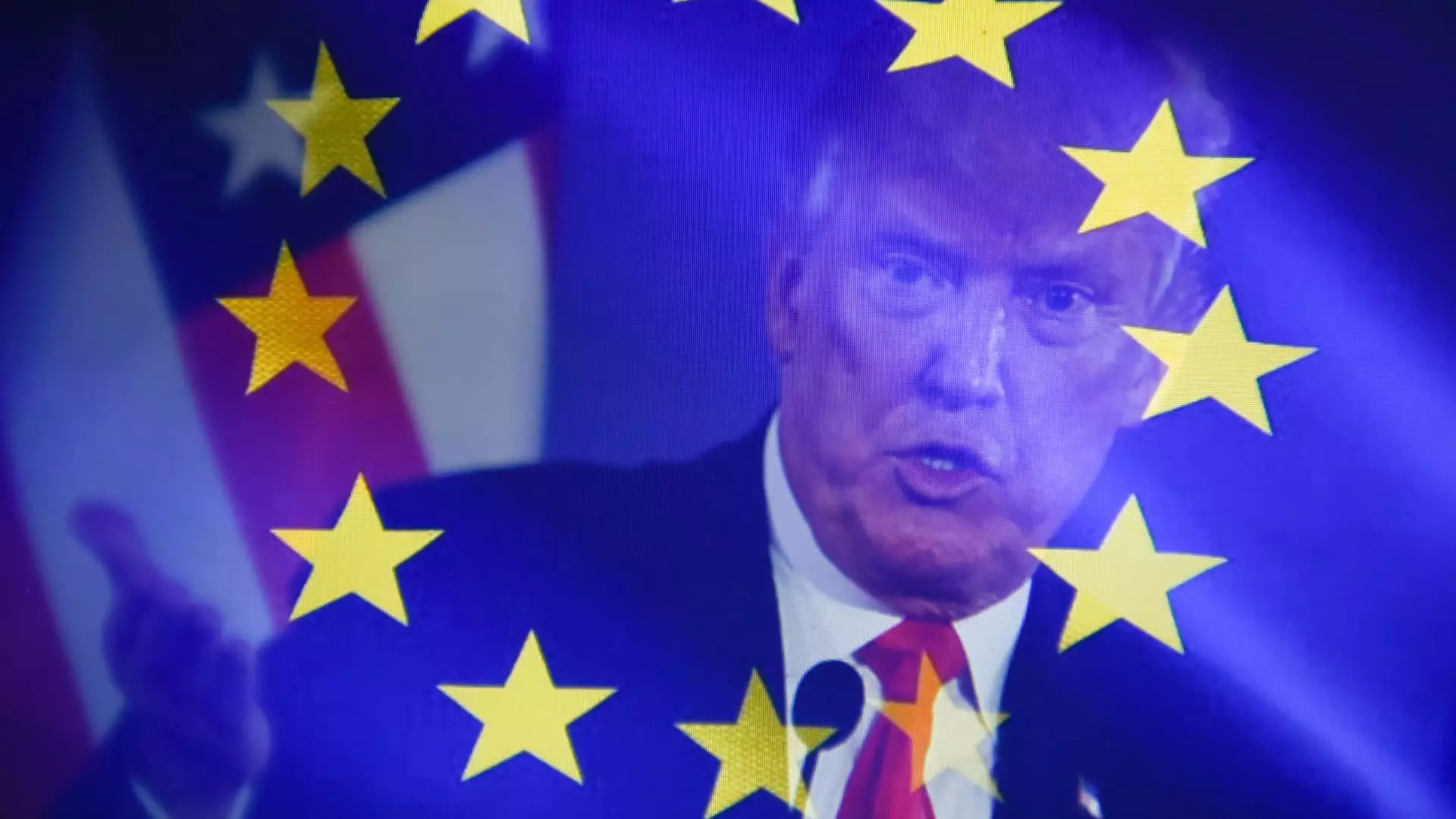In a world where political luminaries claim dominion over economic realities, the European Union (EU) has opted for a strategic pause before implementing retaliatory tariffs on a variety of U.S. goods. European Commission President Ursula von der Leyen announced this 90-day hiatus shortly after the Biden administration announced reductions in its own tariffs. While this move may serve as a temporary element of goodwill, it masquerades a complicated reality beneath the surface—the game of tit-for-tat tariffs is far from over. The idea that diplomatic solutions can resolve the inherently combative dynamics of international trade is both naive and detrimental.
Once poised to finalize tariffs on an array of U.S. imports—including clothing, machinery, and, most critically, agricultural goods—this decision encapsulates the EU’s willingness to engage in constructive dialogue, albeit one that may feel akin to negotiating with a lion wielding a switchblade. Von der Leyen’s assertion that negotiations should have a chance signifies a light at the end of a tunnel, but whose light? This is not merely an exercise in bureaucratic diplomacy; it is a matter of economic survival.
The Panacea of Zero-for-Zero?
A notable component of von der Leyen’s rhetoric is her advocacy for a “zero-for-zero” tariff agreement between the EU and the United States. On the face of it, this sounds appealing: eliminating tariffs may seem like a surefire way to alleviate trade tensions. But paint this over the fractured facade of US-EU relations, and one must question who would benefit from such an agreement. Are we to believe that a government that has traditionally leveraged tariffs as a political tool would suddenly abandon this weapon at the negotiations’ altar?
Let’s be honest. In a world increasingly influenced by populist rhetoric, the notion that we can achieve “zero-for-zero” amid roaring trade wars seems fanciful. Even within our own liberal frameworks, global trade operates on a complex web of incentives and pressures that often overshadow idealistic approaches.
Markets and Marketability: Reacting to Decisions
The aftermath of these tariff announcements—particularly the White House announcement—served as a momentary boon for global markets, with U.S. stock indices reacting favorably. Yet, can we really declare victory when market reactions are dictated by the latest political soundbite? This is reckless. The euphoria in financial markets masks the underlying anxiety that businesses and consumers carry as tariffs inflict economic stress more subtly than we would like to admit. One could argue that corporate cheerleading ultimately distracts from the essential and dire need for sustainable trade policies.
Thus, while von der Leyen’s welcoming of Trump’s tariff reprieve was framed as a rational and positive response, it merely showcases the precariousness of the situation. Here lies the enigmatic complexity of tariffs and market interactions: how do we reconcile advancements on one front while the possibility of conflict looms large on another? Simply put, our economic safeguard is not a binary situation but rather a nuanced dance fraught with repercussions.
The EU’s Countermeasures: Sturdy or Stagnant?
As the EU prepares for countermeasures if negotiations stagnate, one can readily see the ephemeral state of economic diplomacy. Europe’s actions signal its focus not just on the U.S. but on diversifying trade relationships and reducing friction within its own markets. However, is it wise for the EU to put all its eggs in one basket—albeit a more balanced one, as it seeks to bolster relations with countries like Canada and Japan? The strategy of external diversification must not lead to complacency towards longstanding partnerships, guilt by association leading to wider economic ramifications.
An additional question bubbles to the surface: how ready is the EU to target U.S. sectors that are pivotal to its own economy, should push come to shove? The American services sector, particularly technology, is inherently intertwined with the EU’s digital economy, making such a retaliatory action fraught with dangers of its own.
In a world where priorities seem misaligned and rhetoric often rules the day, one must remain cautious. While the EU’s ability to pause tariffs could be deemed pragmatic, it also represents the uncertain ambiance of our times, where the aspirations for a global economic order conflict dangerously with nationalist impulses.

Leave a Reply